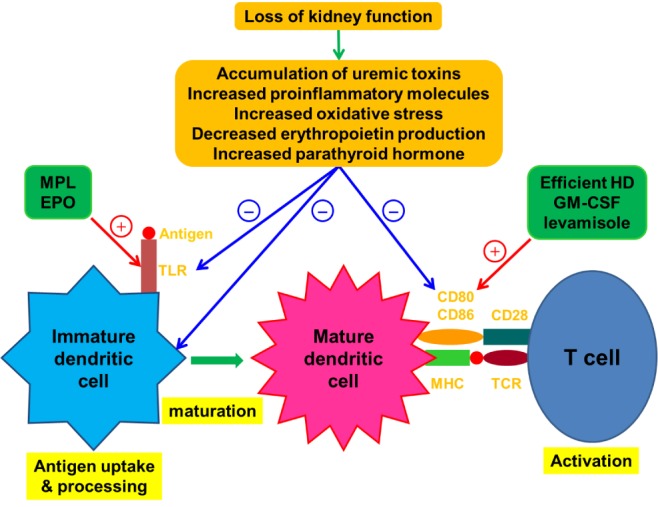Figure 1. Effect of kidney failure on dendritic cells and therapeutic approaches involving the modulation of dendritic cell maturation. The loss of kidney function causes an accumulation of uremic toxins and proinflammatory molecules, leading to chronic low grade inflammation and increased oxidative stress. Kidney failure also leads to disturbed renal metabolic and endocrinologic activities, resulting in abnormalities such as increased parathyroid hormone production and a decreased circulating concentration of erythropoietin. The results of these defects associated with renal failure have detrimental effects on dendritic cells. After sensing a foreign Ag via TLRs and then capturing and processing it, dendritic cells undergo maturation and begin to express Ag–MHCs and appropriate costimulatory molecules like CD80 and CD86 at the cell surface. This process is associated with T-cell activation. Several therapeutic modalities can induce the terminal differentiation of immature dendritic cells into their fully matured immunogenic form through activating TLRs or inducing the upregulation of costimulatory molecules. The red line and plus sign indicate activation. The blue line and minus sign indicate inhibition. EPO, erythropoietin; GM-CSF, granulocyte macrophage colony-stimulating factor; HD, hemodialysis; MHC, major histocompatibility complex; MPL, monophosphoryl lipid; TCR, T-cell receptor; TLR, Toll-like receptor.

